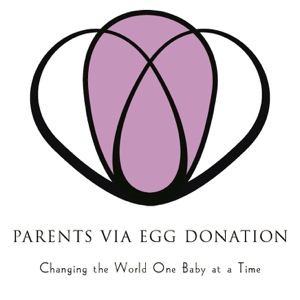Chicago Tribune Examines Egg, Sperm Donation Issues Ahead Of Conference On Donor Registry
The Chicago Tribune on Wednesday examined issues associated with egg and sperm donation ahead of the first national conference to discuss the creation of a registry of such donors in the U.S. Australia, Sweden and the United Kingdom maintain registries of egg and sperm donors. In the U.S., organizations that handle egg, and sperm donations have little oversight, the Tribune reports. Some organizations do not keep records of who receives donated eggs or sperm, and although some groups will help donors and recipients establish contact, many will not.
According to CDC, about 8,000 infants are born annually from donated eggs and embryos. Although reports on infants born from sperm donation are not required, estimates of the annual number range from 5,000 to in the “tens of thousands.” A donor registry would compile donors’ genetic and medical information and track the infants born from their donations. A registry also could help track whether voluntary donation guidelines — which allow for a maximum of six egg donation cycles for women and a maximum of 25 families receiving sperm — are followed, according to the Tribune.
Nigel Cameron, president of the Institute on Biotechnology and the Human Future at the Illinois Institute of Technology, said, “Anything that brings some kind of order into the situation and ensures that children have access to their own genetic and biological information is going to be better.” Wendy Kramer, who runs Donor Sibling Registry, said the industry needs “mandatory reporting of who’s donating, where, how often, what their profiles are and how many offspring are born.
“The three largest U.S. fertility clinics — California Cryobank, Fairfax Cryobank and Xytex Corporation — have said they plan to endorse the idea of a limited donor registry at the conference. Charles Sims, medical officer at California Cryobank, said executives from the three companies will propose a voluntary registry to serve as an archive of information on donors, recipient families and offspring.Sims said there is “concern by a lot of people that information linking a child to his or her genetic or biological origins could be hopelessly lost” if organizations dealing with donors or fertility clinics close. Sims added that any donor registry must respect the privacy rights of donors and families.
Sean Tipton, director of public affairs at the American Society of Reproductive Medicine, said that ASRM believes a registry should include “as much relevant medical information as possible” but is “opposed to proposals that remove anonymity.” Although there is agreement that a registry should maintain the privacy of donors and recipients, it is still unclear how a registry would function in practice, the Tribune reports. Egg and sperm donors provide family medical histories and take extensive tests before donating, but there is no requirement that agencies follow donors to determine whether their medical conditions change, according to the Tribune.
Nanette Elster, director of the Health Law Institute at DePaul College of Law and organizer of the conference, questioned whether it would be legally feasible to ask donors about relevant information if they stipulate they do not want to be contacted.







